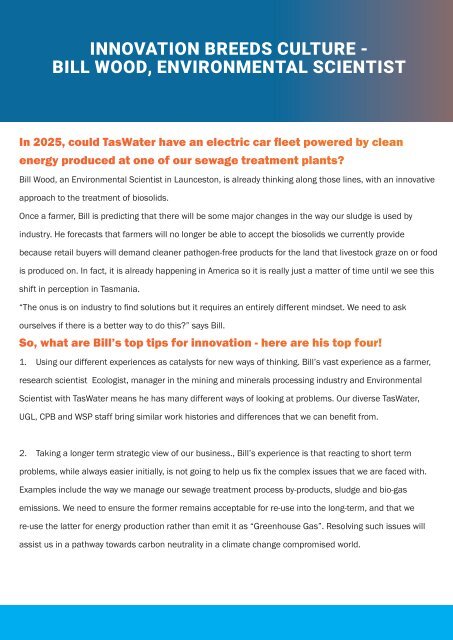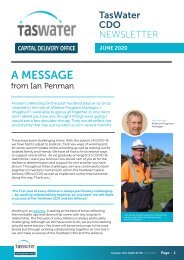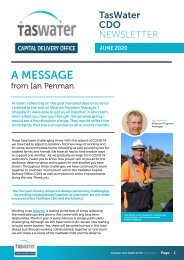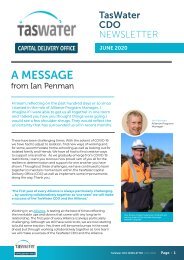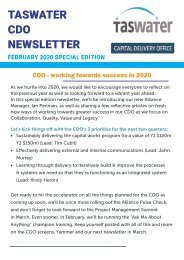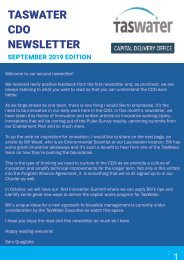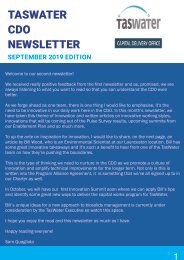Tas Water Sept
You also want an ePaper? Increase the reach of your titles
YUMPU automatically turns print PDFs into web optimized ePapers that Google loves.
2<br />
INNOVATION BREEDS CULTURE -<br />
BILL WOOD, ENVIRONMENTAL SCIENTIST<br />
In 2025, could <strong>Tas</strong><strong>Water</strong> have an electric car fleet powered by clean<br />
energy produced at one of our sewage treatment plants?<br />
Bill Wood, an Environmental Scientist in Launceston, is already thinking along those lines, with an innovative<br />
approach to the treatment of biosolids.<br />
Once a farmer, Bill is predicting that there will be some major changes in the way our sludge is used by<br />
industry. He forecasts that farmers will no longer be able to accept the biosolids we currently provide<br />
because retail buyers will demand cleaner pathogen-free products for the land that livestock graze on or food<br />
is produced on. In fact, it is already happening in America so it is really just a matter of time until we see this<br />
shift in perception in <strong>Tas</strong>mania.<br />
“The onus is on industry to find solutions but it requires an entirely different mindset. We need to ask<br />
ourselves if there is a better way to do this?” says Bill.<br />
So, what are Bill’s top tips for innovation - here are his top four!<br />
1. Using our different experiences as catalysts for new ways of thinking. Bill’s vast experience as a farmer,<br />
research scientist Ecologist, manager in the mining and minerals processing industry and Environmental<br />
Scientist with <strong>Tas</strong><strong>Water</strong> means he has many different ways of looking at problems. Our diverse <strong>Tas</strong><strong>Water</strong>,<br />
UGL, CPB and WSP staff bring similar work histories and differences that we can benefit from.<br />
2. Taking a longer term strategic view of our business., Bill’s experience is that reacting to short term<br />
problems, while always easier initially, is not going to help us fix the complex issues that we are faced with.<br />
Examples include the way we manage our sewage treatment process by-products, sludge and bio-gas<br />
emissions. We need to ensure the former remains acceptable for re-use into the long-term, and that we<br />
re-use the latter for energy production rather than emit it as “Greenhouse Gas”. Resolving such issues will<br />
assist us in a pathway towards carbon neutrality in a climate change compromised world.


